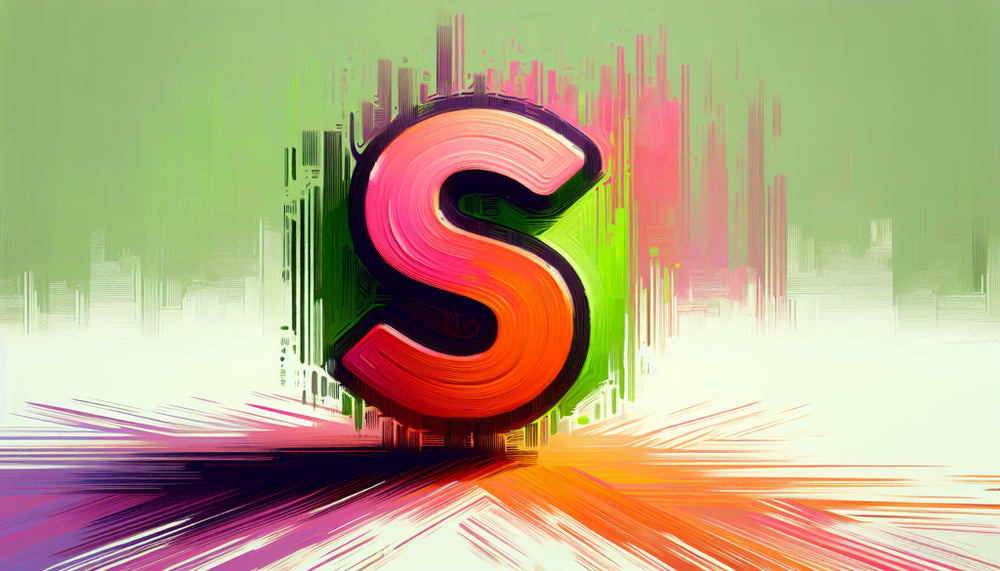Understanding and Utilizing Image Metafields in Shopify

Table of Contents
- Introduction
- What Are Shopify Metafields?
- Why Use Image Metafields in Shopify?
- How to Create and Use Image Metafields in Shopify
- Advanced Customizations
- Frequently Asked Questions (FAQs)
- Conclusion
Introduction
Have you ever wished for more customization on your Shopify store's product pages? Imagine being able to add additional images such as badges, icons, or unique graphics without overcomplicating the process. This is where Shopify's image metafields come into play. By leveraging metafields, you can personalize your storefront in a way that stands out and improves customer experience. In this comprehensive guide, you'll learn everything about using image metafields in Shopify: from creating them to displaying them on your product pages effectively. Let's dive in!
What Are Shopify Metafields?
Metafields in Shopify are essentially custom fields that store additional information about your products, collections, customers, and orders. Originally a developer-centric feature, metafields have become more accessible with Shopify's Online Store 2.0, allowing store owners to add dynamic, customized content to their shops without extensive coding knowledge.
Why Use Image Metafields in Shopify?
Imagine being able to add trust badges, brand logos, or any custom images directly to your product pages. This added customization can:
- Enhance Customer Trust: Displaying icons such as secure checkout or money-back guarantee images can build stronger customer trust.
- Highlight Product Features: Visual representations of product features, such as vegan, cruelty-free, or eco-friendly symbols, can make your product listing more engaging and informative.
- Improve Brand Identity: Consistent use of brand-specific images reinforces brand identity across your online store.
How to Create and Use Image Metafields in Shopify
Creating a Metafield Definition for Images
- Navigate to Metafields: From your Shopify Admin, go to Settings > Metafields.
- Select Product Metafields: Choose "Product" since we aim to add image metafields to product pages.
- Add Definition: Click the Add definition button.
-
Configure the Metafield:
- Name: Give your metafield a descriptive name, e.g., “Trust Badges.”
- Namespace and Key: Typically kept as the default unless you need something specific. These act as identifiers for your metafield.
- Description: Optionally, provide a description for clarity.
- Content Type: Choose “File” since we are dealing with images.
Adding Values to Your Recently Created Metafields
- Go to Products: Open the product you want to add the metafield to from your Shopify Admin.
- Scroll to Metafields Section: Find and click on the empty space next to the metafield name where you’ll upload your image.
- Upload Image: Choose and upload the desired image.
- Save: Make sure to hit the Save button to store your changes.
Displaying Metafields on the Shopify Store
- Open Theme Customizer: From Shopify Admin, go to Online Store > Themes, then click Customize on your current store theme.
- Edit Product Page Template: Open the product page template (default or a custom one).
- Add Custom Liquid Section: Click on Add block and select the Custom Liquid option.
-
Insert Liquid Code:
Replace "namespace.key" with your actual metafield namespace and key.{% if product.metafields.namespace.key != blank %} <img src="{{ product.metafields.namespace.key | img_url: '500x500' }}" alt="Custom Image"> {% endif %} - Save Changes: Click the Save button to apply the changes.
Useful Tips
- Validation Rules: Ensure you set proper validation rules while defining metafields to avoid any inconsistent entries.
- Liquid Variables: Always ensure you're using the correct metafield namespace and key values in your Liquid code.
-
Image Resizing: Adjust the image size directly through the Liquid
img_urlfilter to fit your design needs.
Advanced Customizations
Multiple Images in Metafields
If you need to handle multiple images, follow these steps:
- Create a List Metafield: Choose the ‘List’ type when defining your metafield.
-
Adjust Liquid Code:
This loop iterates over each image in the metafield list and displays them.{% assign images = product.metafields.namespace.key %} {% for img in images %} <img src="{{ img | img_url: '500x500' }}" alt="Custom Image"> {% endfor %}
Conditional Rendering
You might want to display images only under certain conditions:
-
Conditional Liquid Code:
This ensures a fallback message or image is shown if no metafield image is available.{% if product.metafields.namespace.key != blank %} <img src="{{ product.metafields.namespace.key | img_url: '500x500' }}" alt="Custom Image"> {% else %} <p>No additional image provided</p> {% endif %}
Frequently Asked Questions (FAQs)
What if My Metafield Image Doesn’t Show Up?
- Check if the metafield namespace and key are correctly specified in your Liquid code.
- Ensure the image file is uploaded correctly and accessible.
Can I Use Metafields for Other Data Types?
Yes, Shopify metafields can store various data types, including text, number, and reference types, which can be used to customize other parts of your store.
How Can I Add Metafields to Other Templates?
Follow similar steps to add metafields to different templates like collection pages or customer profiles by adjusting the context in the Liquid code.
Conclusion
Understanding and using image metafields in Shopify provides an excellent method to personalize your store and offer a unique shopping experience. With this knowledge, you can take full advantage of Shopify's capabilities to add custom images, improve customer trust, and elevate your brand identity. So go ahead, enhance your storefront, and make your products shine!
Feel free to comment below if you have any other specific questions or face any issues while adding image metafields in Shopify. Happy customizing!
Discover more customization possibilities.
Whether you’re looking to create a unique storefront, improve operations or tailor your Shopify store to better meet customer needs, you’ll find insightful information and expert tips here.

Rich Text Metafield Shopify: A Comprehensive Guide

Comprehensive Guide to Shopify Import Metafields CSV

Shopify Image Metafields: The Ultimate Guide

Efficiently Using Shopify GraphQL to Retrieve Product Metafields

Shopify How to Make a Custom Gift Card

Unlocking the Power of Shopify GraphQL Product Metafields

Shopify GraphQL: Revolutionizing E-commerce Development

Maximizing Your Shopify Store with Global Metafields

Shopify Flow Metafields: Enhancing Automation with Custom Data

Shopify Filter Products by Metafield

Shopify if Metafield Exists: A Comprehensive Guide

Shopify Filter Metafield: A Comprehensive Guide

Shopify GraphQL Update Metafield

Shopify Customize Product Page: The Ultimate Guide

Shopify Custom Page Template: A Comprehensive Guide

Shopify Draft Orders: A Comprehensive Guide

Shopify Custom Metafields: Unleashing the Power of Personalization for Your Store

Shopify Edit Product Metafields: A Comprehensive Guide

Shopify Dynamic Metafields — A Comprehensive Guide

Shopify Customer Account Fields: A Comprehensive Guide

The Comprehensive Guide to Adding a Shopify Custom Text Field

How to Shopify Customize Collection Page for a Standout Online Store

Shopify Custom Page Builder: Unleash the Power of Personalization

Shopify Contact Form Custom Fields

Shopify Custom Landing Page: Creating Effective and Engaging Landing Pages

Shopify Create Product Metafields: A Comprehensive Guide

Mastering Shopify Collections with Metaobjects

Shopify Custom Checkout Fields: Enhancing User Experience

Harnessing Shopify Collection Metafields with Liquid for Advanced Customization

Shopify Checkout Page Customization App: An In-Depth Guide

Mastering Shopify Custom Form Fields

How to Efficiently Handle Shopify CSV Import Metafields

Shopify Create Metaobject: A Comprehensive Guide

Shopify Blog Metafields: Unlocking Custom Content for Blogs

Shopify Add Metafield to All Products: A Comprehensive Guide

How to Add Metafields to Product Pages in Shopify

Shopify Add Metafields: A Comprehensive Guide

Shopify Check If Metafield Exists

Shopify Bulk Import Reviews

Mastering the Shopify Admin: Your Ultimate Guide to Managing an Online Store

Shopify Bulk Import Metaobject: A Comprehensive Guide

Shopify Bulk Import Metafields: A Comprehensive Guide

Shopify Bulk Editor: An In-Depth Guide to Streamline Your eCommerce Business

Shopify Add Fields to Customer Registration Form

Mastering Product Metafields in Shopify Liquid

How to Save Shopify Webhook: A Comprehensive Guide

Shopify Access Metafields: A Comprehensive Guide

How to Add Custom Fields to Orders in Shopify

Mastering Shopify Product Update Webhooks





